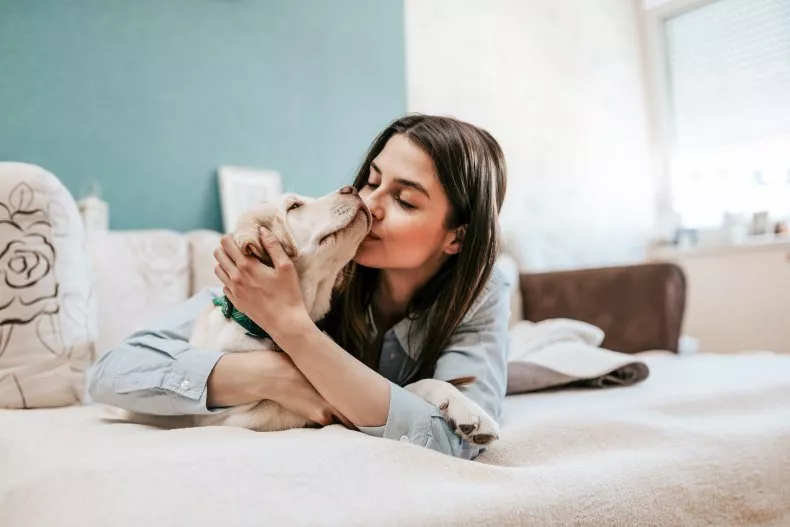
Many people think that socialization plays a bigger role in shaping a positive puppy-parent bond than genetics does. A puppy may form an attachment to you as deep as if you were a blood relative because you would care for and protect him in the same way a mother would.
Your puppy’s keen eyesight and an acute sense of smell can help him rapidly identify you in a crowd of unfamiliar faces. On the other hand, your puppy will need some TLC to learn how to connect with others and to trust that you are his loving pet parent.
A Nose for Truth
James Walker, the former head of Florida State University’s Sensory Research Institute, estimates that a dog’s sense of smell is 10,000 to 100,000 times more sensitive than a human’s due to the dog’s higher number of receptors (220 million vs. 5 million). Dogs have the unique ability to distinguish between the odors produced by the bodily fluids of different people. Dogs also have a scent at the bottom of their noses that may be used to determine their species and the gender of other dogs around. Throughout the day, Fido will be exposed to Mom’s fragrance in many forms: on her skin, in her clothing, in her home, in her vehicle, and even in her bed.
Okay, but what about the eyes?
Even though research on canine vision is ongoing, it seems that domestication has increased dogs’ sensitivity to the expressions on people’s faces. Veterinarian Outi Vainio of the University of Helsinki found in 2013 that when dogs were shown photographs of people, their eyes lingered longest on those of their owners. These conclusions are supported by research from Paolo Mongillo of the Italy’s University of Padua. This researcher found that a dog will stare at his owner for far longer than he would at strangers as they walked across the room, and his findings were published in the journal Animal Behaviour. Dogs’ lack of interest in human participants who walked across a room while wearing paper bags over their heads proved that the phenomenon was related to sight rather than scent.
Mother Nature vs. the Effects of a Caring Environment
Spot’s pet parentage may be signaled in part by his or her behavior. Historically, canines have existed in social packs headed by an established alpha. The VCA Animal Hospitals website asserts that the human-animal connection is not predicated on a struggle for dominance. Several elements, like shared DNA, shared experiences, and the ability to work through disagreements, contribute to the strength of the tie. According to VCA, a dog’s relationship with its human family may be made stronger, healthier, and more permanent via the use of positive reinforcement, socialization with other people and dogs, and consistency in training.
Both You and Fido Will Recognize It
Your puppy’s instincts and behaviors learned from you will work together to identify you as his mother. You and your puppy will benefit much from enrolling in training together at a young age. Your vet will be able to advise you on whether or not puppy courses or one-on-one training will be more helpful for your new pet. It’s also a good idea to sign your puppy up for health insurance while they’re still young.